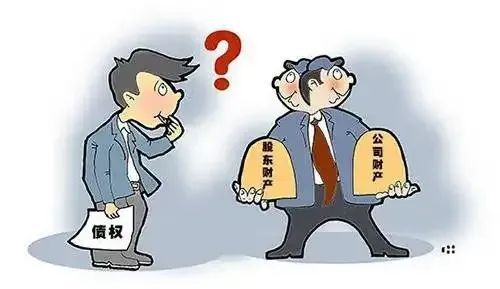Huaifa Case [2023] 36
In practice, when a one-person company becomes an executor and its property is insufficient to pay off its debts, its sole shareholder will often be applied to be added as the executor to share the debts with it. At this time, if the shareholders of a one-person company transfer their shares to many people and the nature of the company changes, can the original shareholders be added as the executor? In this issue, the judge said that through an execution objection case examined by Judge Liu Zhilin of Huaiyin Court, we can jointly understand relevant legal issues.

In the case of labor contract dispute between Wu and Company A, the court ruled that Company A paid Wu 450,000 yuan for labor service. Company A failed to fulfill the obligations determined by the effective judgment, and Wu applied to Huaiyin District Court for compulsory execution. During the execution, the court ruled to terminate the execution procedure because Company A had no property to execute. Therefore, Wu applied to the court to add Company B, the sole shareholder of Company A, as the executor. During the objection review after the court accepted it, it was found that Company B had transferred its equity to Lin, Liu and Ma, and the nature of Company A was changed to a limited liability company.

Company B argues that it is independent of the property of the person subjected to execution, the person subjected to execution still has enough assets to pay off debts, and it is no longer a shareholder of the company, so it does not agree to add it as the person subjected to execution.

Huaiyin Court considered that Company A and Company B, knowing that the court had accepted Wu’s application to add Company B as the executor of the case, and had completed the service, investigation and hearing, were still carrying out equity transfer and changing the nature of the company during the case review, which was suspected of obstructing the case review and evading liability. The court refused to recognize this. In order to protect the legitimate rights and interests of the successful parties, the court will handle it according to the actual situation of Company A at the time of accepting the case.
According to the provisions of Article 20 of the Supreme People’s Court’s Provisions on Several Issues Concerning Alteration and Addition of Parties in Civil Execution, if a one-person limited liability company is an executor, and its property is insufficient to pay off the debts determined by the effective legal documents, and the shareholders cannot prove that the company’s property is independent of their own property, the applicant for execution may apply for adding the shareholder as the executor and bear joint and several liabilities for the company’s debts. In this case, when the case was accepted, Company A was a one-person limited liability company, and our court did not find any property available for execution in the name of the company. Although Company B claims that Company A, the person subjected to execution, still has enough assets to pay off debts, but it has not submitted the property clues about Company A to the court, which will not be recognized by the court. According to the above provisions, one-person limited liability company, as the person subjected to execution, has insufficient property to pay off the debts determined by the effective legal documents, and the sole shareholder, Company B, should bear the burden of proof that its property is independent of that of Company A, but the evidential materials submitted by Company B are insufficient to prove that the property of Company A is independent of its property, so the court supports Wu’s additional request.
In the end, Huaiyin Court ruled that Company B was added as the executor of the case. After the ruling was made, neither party filed a reconsideration, and now the ruling has come into effect.

The independent system of corporate personality and the limited liability system of shareholders are the two cornerstones of modern company law, which have effectively promoted the vigorous development of China’s company system. However, individual shareholders abuse these two systems to avoid debts and damage the rights and interests of the company and other shareholders. One-man company, as a special company form with only one-man shareholder, means that the shareholder enjoys absolute control in the company, which greatly increases the risk of shareholders abusing the independent status of corporate personality and the limited liability system of shareholders. For this reason, the legislation has set a lower threshold for denying the corporate personality of a one-person company. For example, in the Provisions of the Supreme People’s Court on Several Issues Concerning Alteration and Addition of Parties in Civil Execution, the procedural convenience of adding a shareholder of a one-person company is realized, that is, as long as the company’s property is insufficient to pay off debts and the one-person shareholder cannot prove that the company’s property is independent of its own property, the shareholder is directly added to bear joint and several liabilities for the person subjected to execution.

However, in practice, it often happens that shareholders of one-person companies transfer their shares. Should the original shareholders bear the responsibility at this time? In our opinion, we should not take it as the "original shareholder" or "current shareholder" to determine whether to bear the responsibility, but should consider comprehensively the time when the debt occurs, whether there is hotchpot between the shareholders and the one-person company, and the time when the equity transfer occurs. In this case, when the debt occurred, Company B was a shareholder of Company A, and Company B could not prove that Company A’s property was independent from its property, and the case had entered the execution procedure when Company B transferred its equity, so even if Company B is not a shareholder of Company A at present, it should still be listed as the executor.

Provisions of the Supreme People’s Court on Several Issues Concerning Alteration and Addition of Parties in Civil Execution
Article 20
As a one-person limited liability company subject to execution, the property is not enough to pay off the debts determined by the effective legal documents, and the shareholders can’t prove that the company’s property is independent of their own property, and the people’s court shall support the application for the executor to change and add the shareholder as the person subject to execution and bear joint and several liabilities for the company’s debts.
Written by Huang Jian
Original title: "Judge’s Statement" In the execution procedure, if the nature and shareholders of a one-person company change, can the original shareholder be added as the executor? 》
Read the original text
关于作者